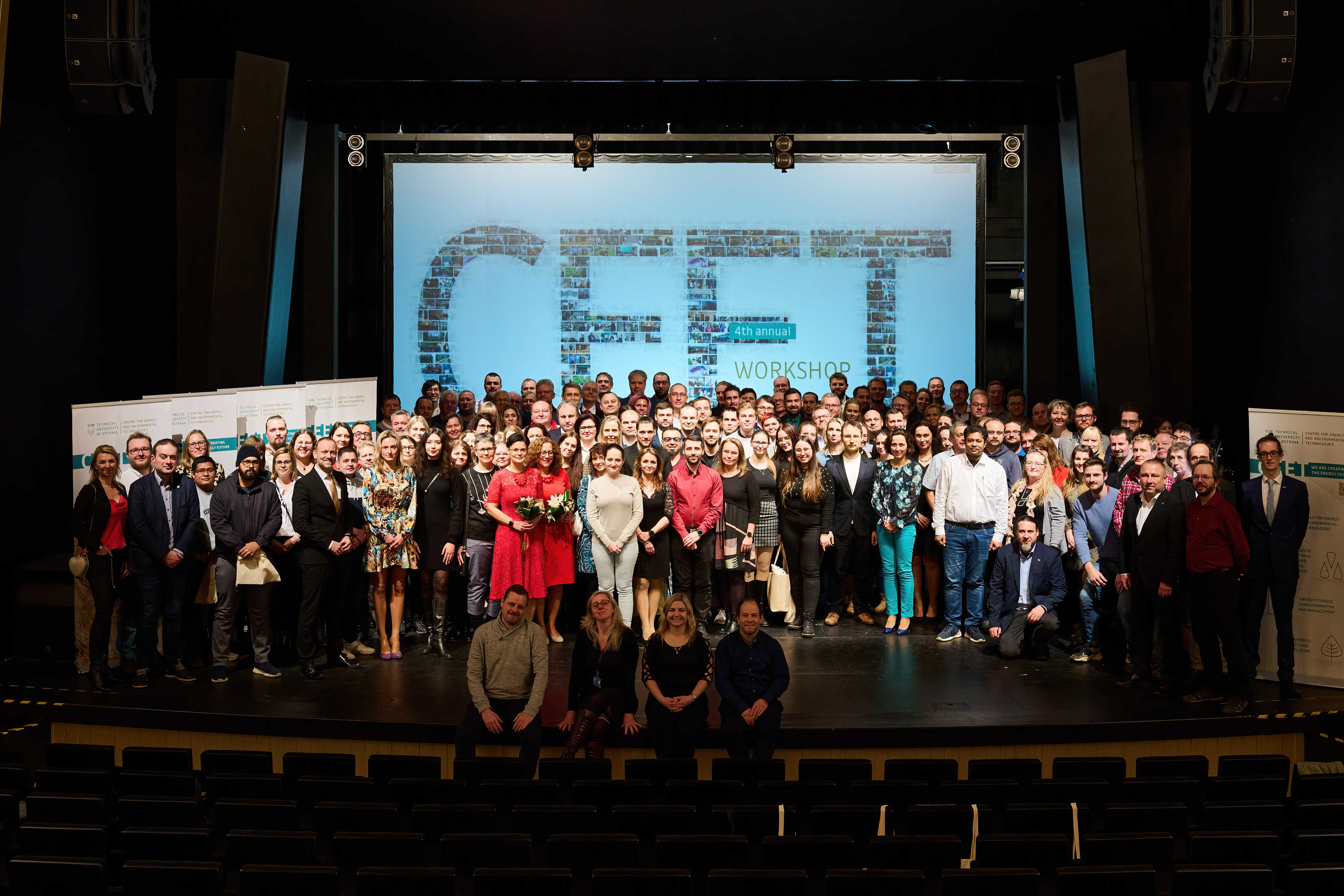CEET Workshop 2024 – Inspiration for the Future
For the first time, panel discussions were part of the workshop, offering new perspectives on solving key problems and bringing many inspirational ideas. The event was marked by the sharing of experiences and the search for common solutions. The director of the CEET, Stanislav Mišák, in his opening speech, emphasized the importance of fulfilling the CEET vision, mission, and strategy, which clearly aligns with the needs of society, both in the short and long term.
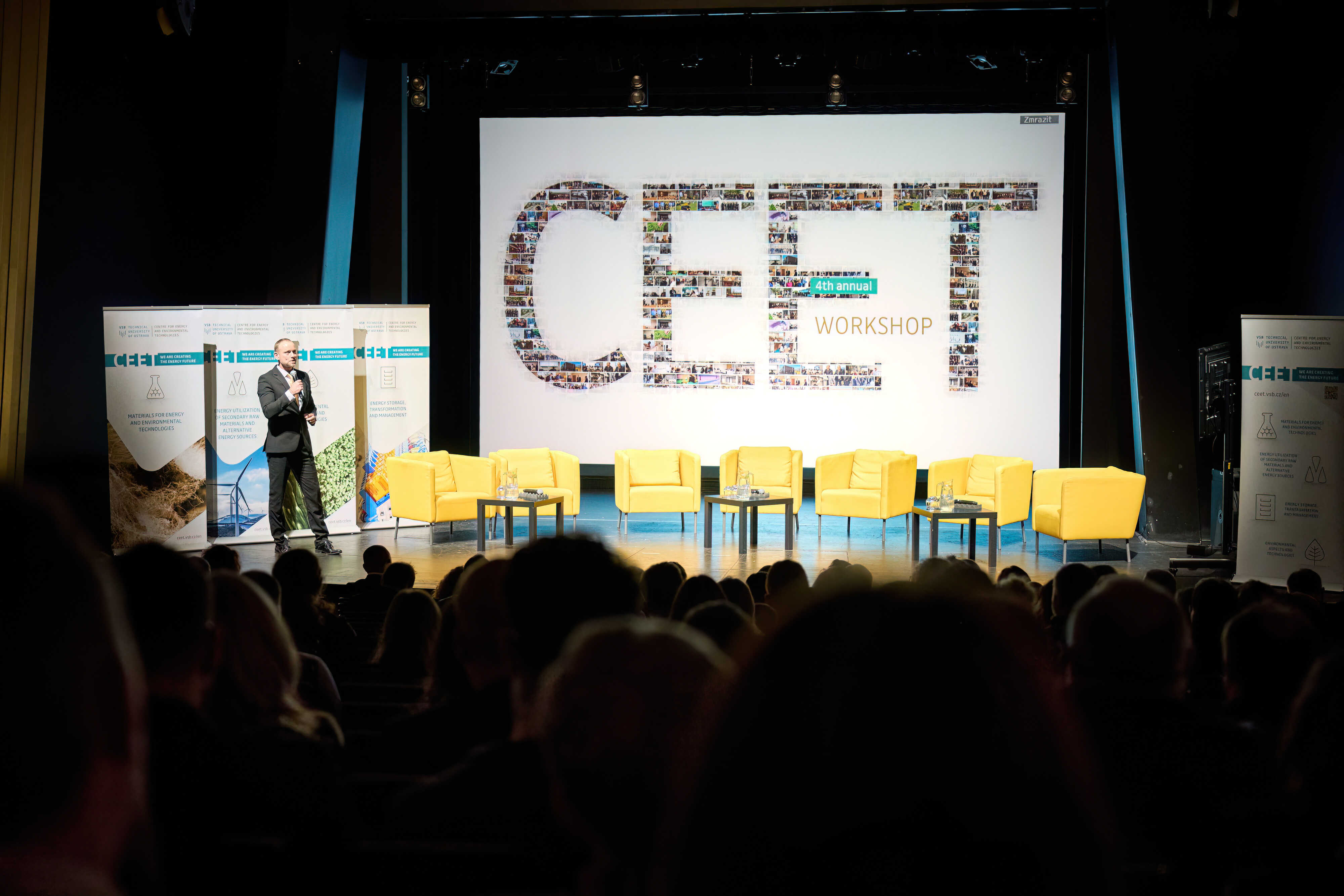
Nanotechnology: Solutions for Global Challenges
The first panel discussion, focused on the topic "Nanomaterials for Sustainable Technologies," was led by the director of the Nanotechnology Centre, Grażyna Simha Martynková. The discussion included leading experts in nanomaterials and IT, including Radek Zbořil, Karla Čech Barabaszová, Štěpán Kment, Michaela Tokarčíková, and Michal Otyepka.
One of the main topics was the use of nanotechnology in medicine, energy, and environmental protection. Radek Zbořil emphasized that the unique physicochemical properties of nanomaterials allow for the expansion of scientific knowledge. The role of artificial intelligence in the development of new nanostructures was also discussed, with Michal Otyepka highlighting that AI enables scientists to predict material properties more quickly, optimize designs, and streamline manufacturing processes. Special attention was also given to the use of nanotechnology in recycling. Panelists discussed the possibility of creating materials that are easier to recycle and less demanding in terms of primary resource consumption, which is especially crucial in the context of the growing demand for sustainable solutions in industry and construction. The discussion highlighted that nanotechnology is not just a promise for the future but is already widely applied across various industries. Development in this field is considered essential to addressing the challenges faced by modern society, from climate change to the search for new energy sources.
"In my point of view, the workshop was very positively oriented. The most important challenges currently emphasized in energy and the environment were addressed, and they essentially serve as topics for future workshops, which could be conducted in the same structure," said Grażyna Simha Martynková.
"I was thrilled with the conference format. The panel discussions demonstrated an exceptional breadth of research topics and global challenges that we are tackling at CEET. I am really looking forward to the next year, where, in addition to these interesting discussion formats, I would suggest adding presentations from selected researchers and showcasing some of the cutting-edge outputs and technologies we are developing at CEET. The opening presentation by the director, Prof. Mišák, showed that we definitely have something to be proud of, and CEET is on the right path to becoming a European leader in sustainable technologies," said Radek Zbořil.
"It was a great honor to be a guest at this workshop and to share insights into the possibilities of utilizing artificial intelligence in material design. The event was excellently organized and stood out for its high level of expertise. The panel discussions provided inspiring perspectives on diverse research areas and global issues that CEET focuses on. The opening speech by the director of CEET, Stanislav Mišák, clearly demonstrated significant progress toward becoming a European leader in sustainable technologies. I am already looking forward to next year's edition," said Michal Otyepka.
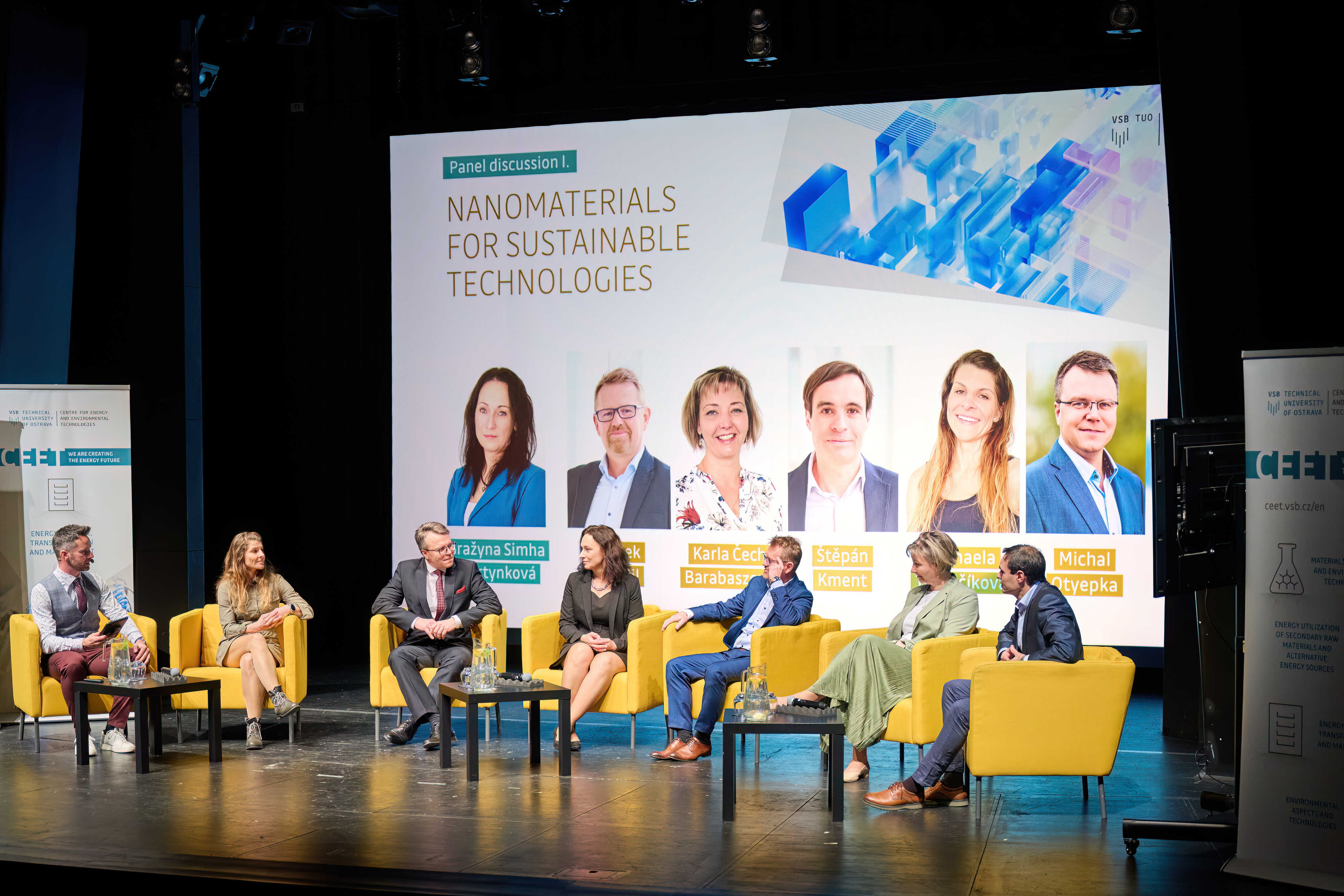
Sustainability and Recycling
The second panel discussion, on the topic "Utilization of Various Types of Waste and Waste Heat," was led by the director of the Energy Research Centere, Karel Borovec, with the participation of Jozef Vlček, Jiří Rusín, Pavel Leštinský, David Kupka, and Jan Najser.
Speakers focused on the key challenges associated with the growing production of waste, particularly plastic, which is becoming a serious environmental problem, as well as on various methods of waste management. Alternative technologies such as gasification and pyrolysis promise more efficient waste utilization. Furthermore, positive examples are emerging in the Moravian-Silesian Region, such as a new sorting line in Ostrava that automatically sorts waste, increasing recycling efficiency. The discussion also emphasized the importance of public awareness, which is crucial for responsible waste management and improving sorting across generations.
"I think the discussion was positively oriented, which was the main goal. We tried to motivate people in some way and also entertain them, as there were quite a few participants who do not have technical knowledge. The combination of technical topics with applications in everyday life was a very well-chosen format," said Karel Borovec.
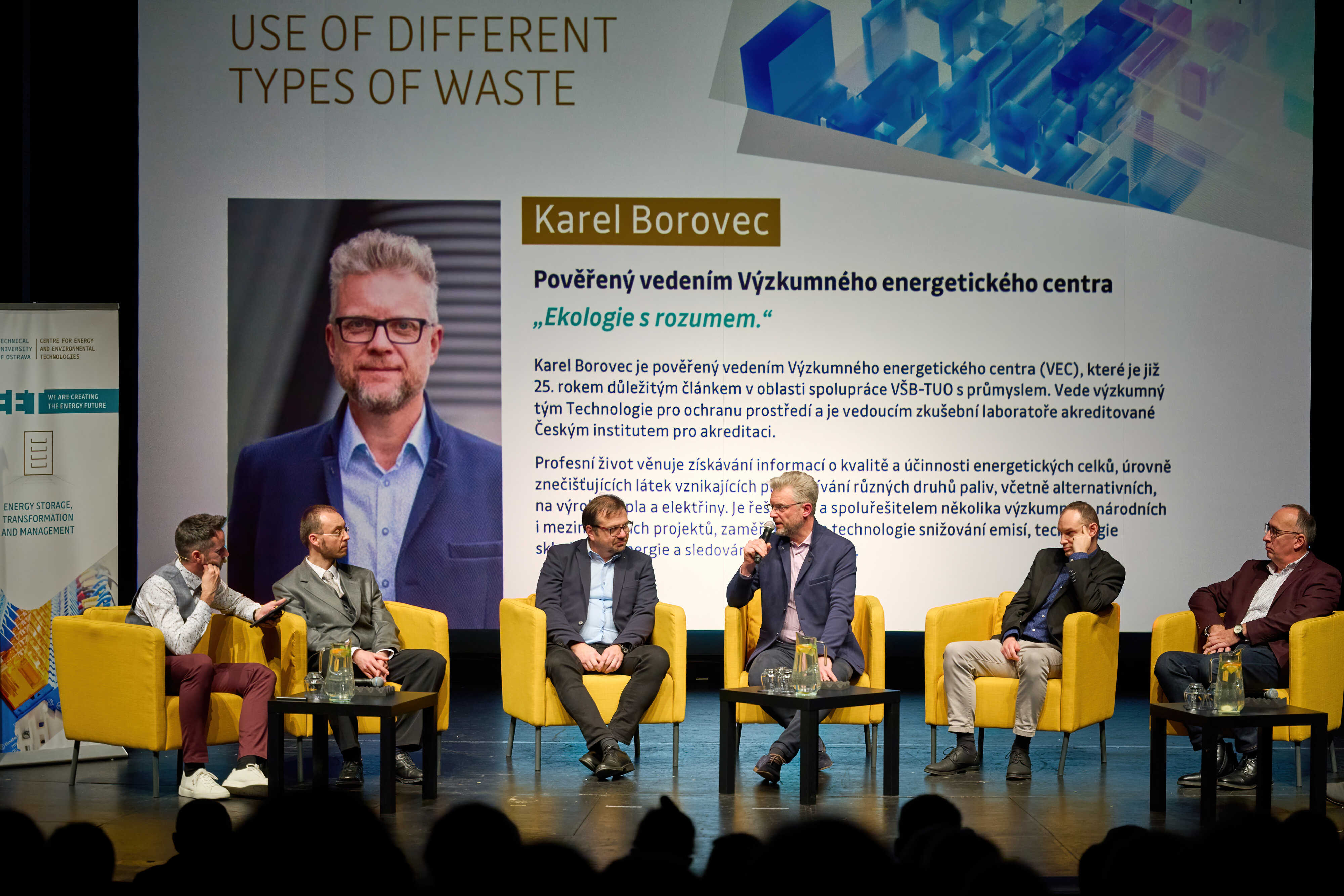
Green Hydrogen: The Key to Energy Independence
After a short break, the third panel discussion on the topic "Green Hydrogen – Where Will Hydrogen Technologies Thrive?" followed. It was led by the director of the ENET Centere, Lukáš Prokop, who, along with panelists David Seidl, Pavel Kedroň, Stanislav Mišák, Ján Vereš, and Jakub Dušek, addressed the subject.
The discussion on green hydrogen provided important insights into its potential. Stanislav Mišák warned against dependency on the import of this fuel and called for the development of local technologies that would allow for the production of hydrogen from local sources, including alternative fuels and waste. The challenges associated with hydrogen, from its storage to production and use in transportation, were also discussed. David Saidl recalled the beginnings of diesel engines, stating that what seems difficult today could become a common part of our lives in a few decades.
"I must say that I really liked the chosen format. We had the opportunity to communicate current challenges and obstacles in hydrogen technologies to all our colleagues and also directly answer the questions from the audience on stage," said Lukáš Prokop.
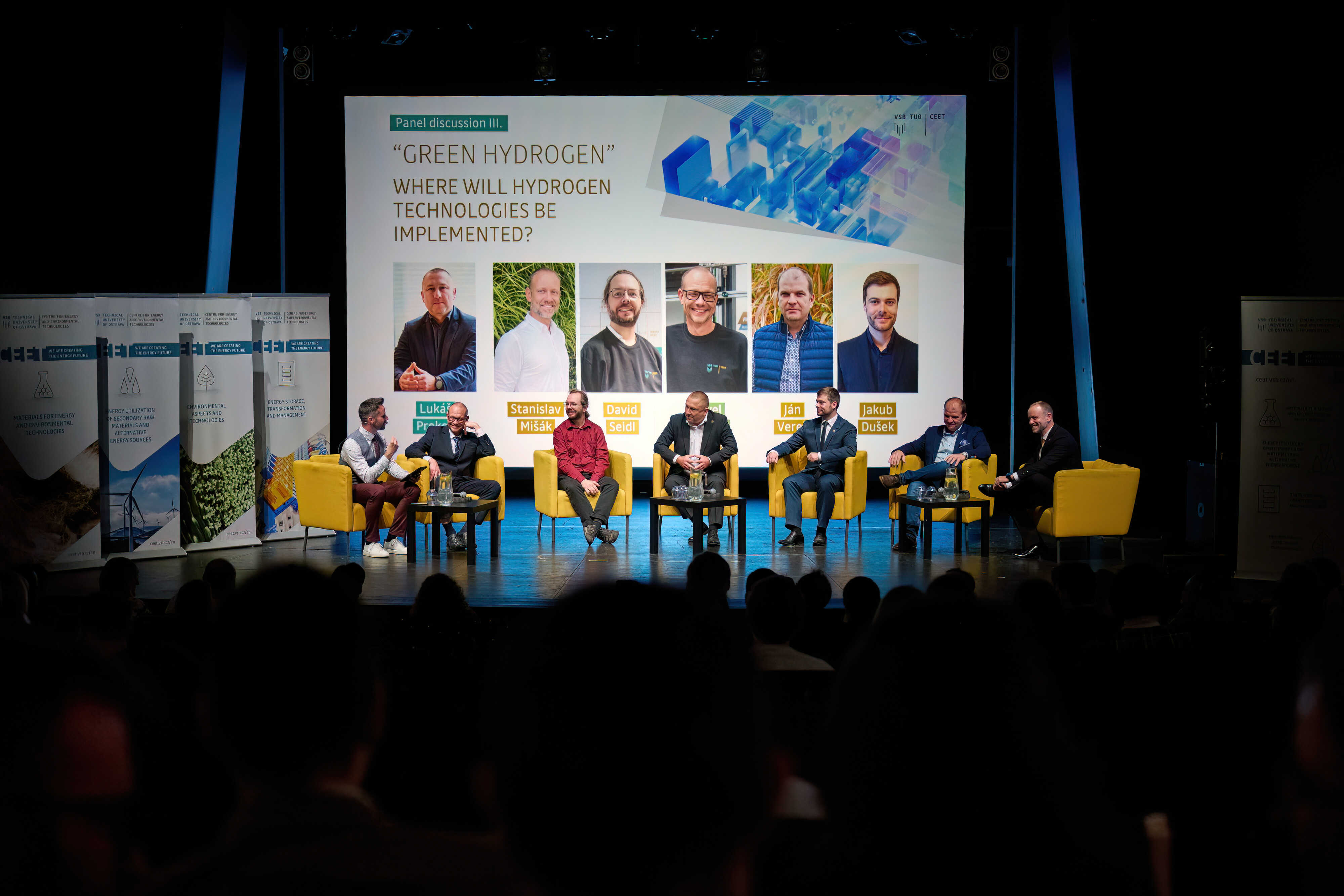
Air and Water Quality: Challenges and Progress
The final panel discussion on the topic "Clean Water, Fresh Air: Mission (im)possible?" was led by the director of the Institute of Environmental Technologies, Lucie Obalová. The panelists, Jiří Bílek, Tereza Bílková, Petr Praus, Martina Vráblová, and Jiří Ryšavý, addressed environmental quality, with particular attention to air and water quality in Ostrava and its surroundings.
Ostrava, with its long industrial history, has made significant progress in recent decades. Improvements in air quality are the result of long-term investments in modernizing industrial processes and tightening emissions limits. However, the region still faces challenges such as air pollution from industrial areas in neighboring Poland and local heating systems, which are major sources of pollution, especially in winter.
In terms of water quality, the high standard of Ostrava's drinking water was praised. The tap water in Ostrava is considered to be among the best in the country, reflecting the positive trend in ensuring high-quality water resources for the city's residents. This water is regularly monitored and meets strict hygiene standards, which is evidence of the quality infrastructure and effective management of water resources. However, even though the quality of drinking water in Ostrava is excellent, the discussion also focused on the growing challenge of wastewater, particularly the presence of microplastics, pharmaceuticals, and other micropollutants in watercourses.
"For me, it is important that the panel discussions were appreciated not only by the scientists but also by all other CEET employees, who said that the content was understandable and interesting, and I personally consider this a great contribution to the event," said Lucie Obalová.
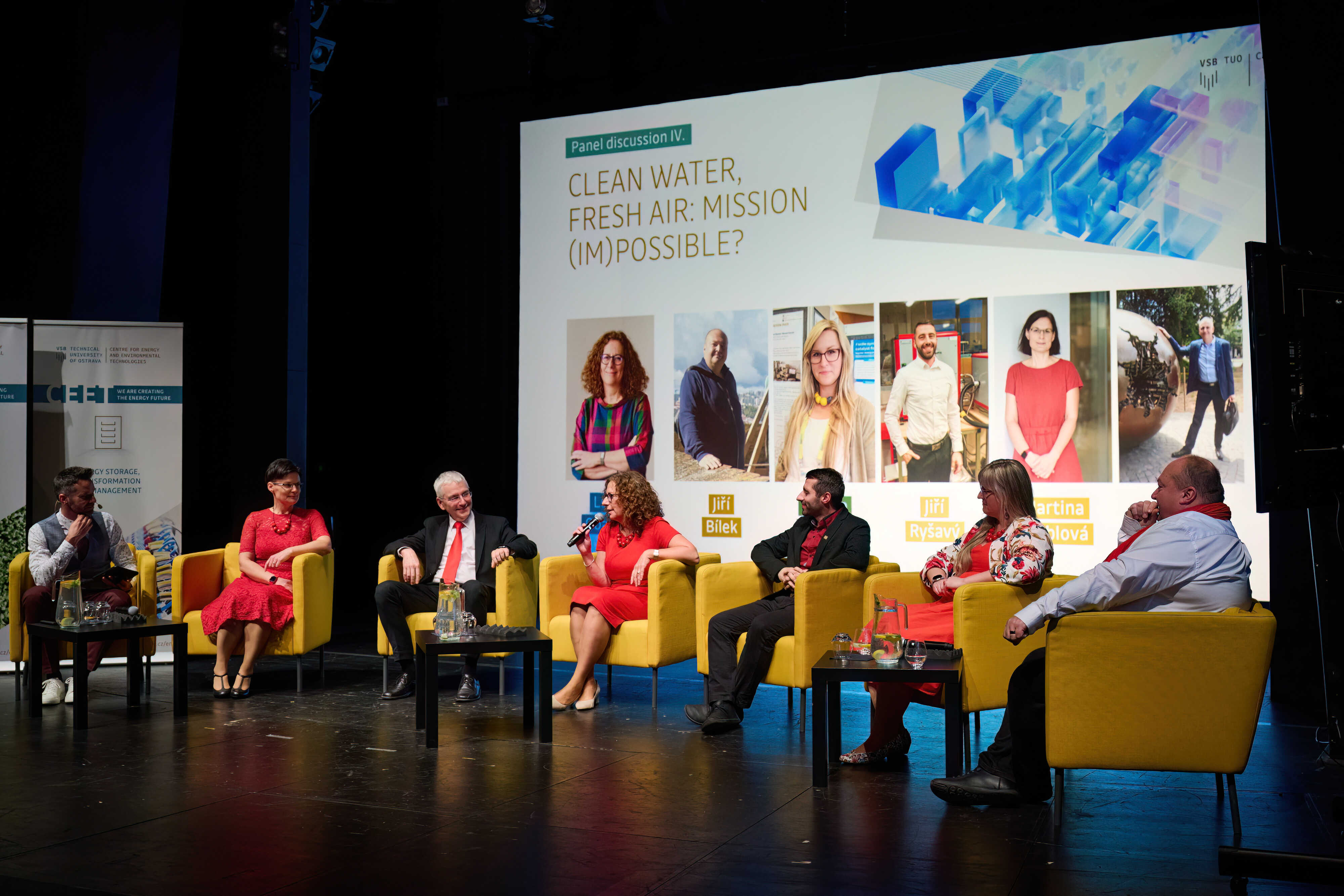
The entire event was concluded by the director of CEET, Stanislav Mišák
"I am thrilled with the atmosphere of today's meeting, which faithfully reflects the excellent work of all CEET employees throughout the year and symbolically closes a successful 2024. I am convinced that our approach and strategy are the way to confirm our excellence on a global scale and can serve as inspiration for other research teams. I would like to thank all the workshop participants and CEET employees for their professional approach and dedication to fulfilling our common vision," said Stanislav Mišák.
